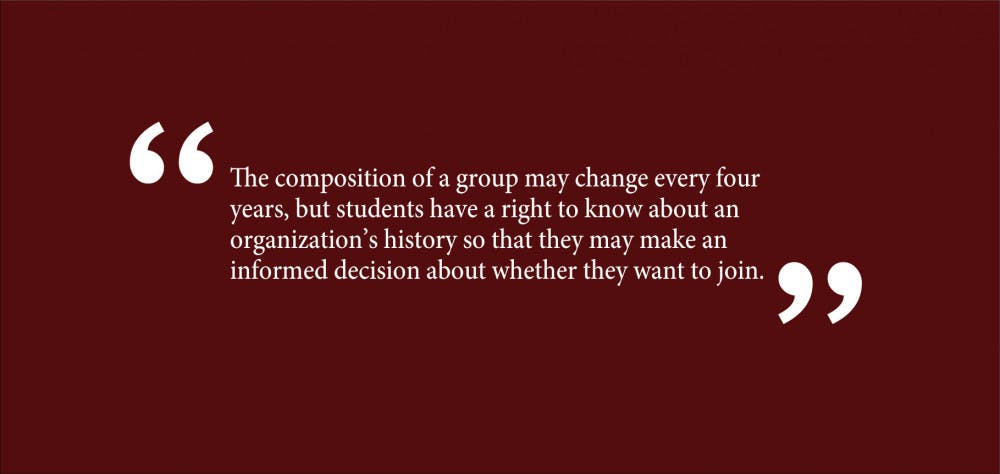As a domestic student and a very infrequent party-goer, I neither knew nor cared all that much about Buxton International House. I recognized it only from the flags that hung from its windows, showing off the home countries of its residents. I had heard unpalatable rumors, and those I found concerning, but with no way of verifying them, I couldn’t exactly do much. I had to trust Brown’s official channels to take care of any actual problem.
Those official channels suspended Buxton last month, but I still feel that I know little about the situation. Per Brown policies, all hearings are closed. As a result, the specifics of Buxton’s violations — or the violations of any student group — are kept from the general student body. This policy prevents non-affiliated students from both knowing what an organization has done and fully understanding the judgment that Brown has officially passed on the organization. The University should change its policies to make the records from all student organization hearings available to the Brown community.
The suspension of a student organization does not just affect the students presently involved with that group. What about former members, who may have left for reasons that are related to why the group is being punished? What about alums who once ran the group? Or what about students who just generally want to know why a once-popular group is now suspended? Transparency makes it possible for everyone impacted to inform themselves. This openness would quell rumors by making exact information readily available, creating a less hostile climate in which students can go straight to the evidence instead of relying on hearsay to try to figure out the details of what happened.
This policy change would also ensure that groups are held accountable in the future, if they are reinstated after a suspension. Having documents available provides institutional knowledge to members who join after a violation. If new members witness behavior that makes them uncomfortable, they will have records to affirm that this behavior is part of a consistent pattern, helping to confirm that they are not alone in their discomfort and potentially motivating them to report inappropriate activity. Further, the composition of a group may change every four years, but students have a right to know about an organization’s history so that they may make an informed decision about whether they want to join. Depending on the nature of the violation, some students might prefer to avoid a group altogether. Making disciplinary records available to the student body adds another layer of accountability to the groups themselves by keeping them from hiding any blemishes that lie in their past.
Finally, having documents available to the public would help with University accountability. Students currently have no way to ensure that disciplinary policies are being consistently enforced. As members of the Brown community, I believe that we have a right to know that Brown’s administration holds all student groups to the same standards. It is troubling that there is currently no way for students to see if there appear to be any biases against specific groups or types of groups.
I understand the need to withhold information such as the names of specific students involved. However, the specific violations, evidence, counterevidence and the reasoning that is ultimately presented for a disciplinary decision should be made public in order to allow the Brown community to be fully informed. If official notes from the hearings are not released, then the very least that Brown could do is inform its student body about penalties passed again student groups, potentially through announcement services like Today@Brown, which is already utilized for serious University announcements such as Corporation meetings.
Ultimately, this isn’t really about Buxton at all. As I said at the beginning, I neither know nor care about them all that much. But if a group I was in faced a disciplinary hearing, I would want the student body to know why and to make their own judgments. As a student leader myself, I should be held accountable both by the University and by my peers if I caused harm through the violation of Brown policies. Brown currently refuses to offer the evidence that enables the critical thinking necessary for informed judgments, a policy contrary to the goals of building an engaged and informed student body.
Caroline Mulligan ’19 can be reached at caroline_mulligan@brown.edu. Please send responses to this opinion to letters@browndailyherald.com and other op-eds to opinions@browndailyherald.com.





